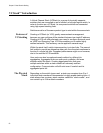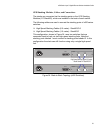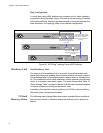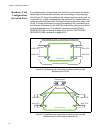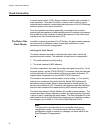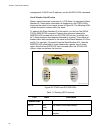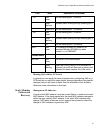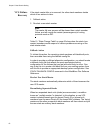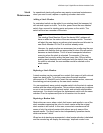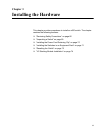
x600 Series Layer 3 Gigabit Ethernet Switches Installation Guide
59
Note
The ability to independently set both a stack member’s priority and
its ID means that the stack master does not need to have an ID of 1;
although configuration is simplified by arranging for ID 1 to be the
device with the lowest priority value - and thereby forcing it to be the
stack master. If you create a stack using new switches, the following
(simplified) process should ensure that the master member has an
ID of 1.
New switches are shipped with a Stack Member-ID of 1 and a
priority of 128. If four such switches are created as a stack, the
switch with the lowest MAC address will be selected to be the stack
master (because all priority settings are 128). The remaining three
stack member devices will then reboot and automatically be
assigned IDs values of between 2 and 4. The stack master does not
reboot and retains its Stack Member-ID of 1.
You can change the Stack Member-ID by using the STACK RENUMBER
command.
Common Stack Configuration
Once the switches have configured themselves into a VCS stack, they all
share the same configuration information and startup scripts.
Stack Management VLAN
Managing the stack is the same as managing an individual switch. You
can connect to the asynchronous console port of any stack member, or
you can set an IP address on a network VLAN (for example, VLAN1) and
use SSH or Telnet for remote access.
As the switches form themselves into a stack, each switch creates a
common stack management VLAN and a management IP address. Both
the VLAN ID and the IP address are internal entities that are used between
the stacked switches, via the AT-StackXG interfaces, and therefore do not
appear on the user network.
Initially the stack assigns the default VLAN tag ID of 4094 to the
management VLAN, and assigns an IP address from the subnet
192.168.255.0 / 28 to this VLAN as the management IP address. Once the
stack has formed, you can change both these settings. To change the
VLAN ID use the STACK MANAGEMENT VLAN command. To change the
management IP address use the STACK MANAGEMENT SUBNET
command. Note however, that you must keep the 28 bit subnet mask, (/28
or 255.255.255.240). Also note that because the stack’s internal address
mapping tables will register the management VLAN ID and the
management IP address, these must be unique across the stack’s internal
and external network. To view the current settings for the stack




